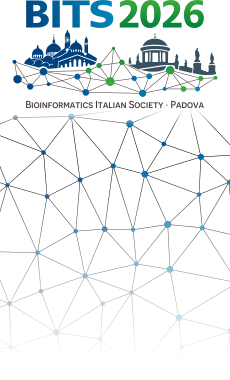Description:
San Raffaele Telethon Institute for Gene Therapy (SR-Tiget) is leading worldwide research institute in the field of
Gene Therapy. The Unit of “Safety and insertional mutagenesis”, directed by Dr. Eugenio Montini, is in charge of molecular analysis of clinical and pre-clinical studies to assess the safety and long term efficacy of the gene therapy treatment (Naldini, 2015). Current gene therapy approaches deliver the therapeutic genetic material through retroviral vectors exploiting their ability of permanently integrate in the host genome of disease cells and thus stably correct the disease. The molecular time course analysis of patient status and thus of the safety and efficacy of the treatment is performed through the study of vector integration sites, genomic coordinates where vector integrated, as our recent published works show (Marktel, et al., 2019; Sessa, et al., 2016). We are also studying the phenotype and fate of transplanted human and mouse hematopoietic stem and progenitor cells marked with specific vector constructs and evaluating their impact on the hematopoietic reconstitution in different mouse models. Moreover, we are using chromatin conformation capture technology to study the physical interactions between integrated lentiviral vector constructs and the surrounding chromatin. This approach provides the opportunity to observe and compare chromatin conformation changes occurring in the genome after the semi-random insertion of vector constructs containing different genetic elements.
The bioinformatics group in the Unit is aimed at supporting all the research lines, with particular focus on (1) efficiently processing big data (genomic data) on high performance computing in distributed environments, (2) developing new algorithms, statistical methods and software tools to support the assessment of safety and long term efficacy in vivo (Spinozzi, et al., 2017), (3) developing new bioinformatics approaches to dissect the human haematopoiesis and its reconstitution in vivo after transplantation, and (4) developing new methods for studying chromatin conformation using genomic data (such as Hi-C). We are looking for highly motivated candidates with a long term commitment for translational research also to be involved/proposed in/for a computer science doctorate program. Developing skills/attitude are required to support autonomous work.
Requirements
The ideal candidate is seeking a long-term commitment in research. Preferred experiences/skills: theoretical and practical statistical approaches, algorithm and software development, next generation sequencing (NGS) data analysis (paired-end reads alignment, data filtering, variant calling. Examples of technologies: Illumina and 10X; examples of data: RNA-seq, scRNA-seq, ATAC-seq, ChIP-seq, Guide-seq, whole genome sequencing. Examples of pipelines and tools: Cellranger, BWA, Samtools, GATK, R packages EdgeR, DeSeq). Programming languages and statistical frameworks (Bash scripting, Python, R, Matlab).
2 Bioinformatician positions at San Raffaele Telethon Institute for Gene Therapy
Location
SR-Tiget (San Raffaele) Milano
Referent
Eugenio Montini
Deadline for application
11/2019
Contact




